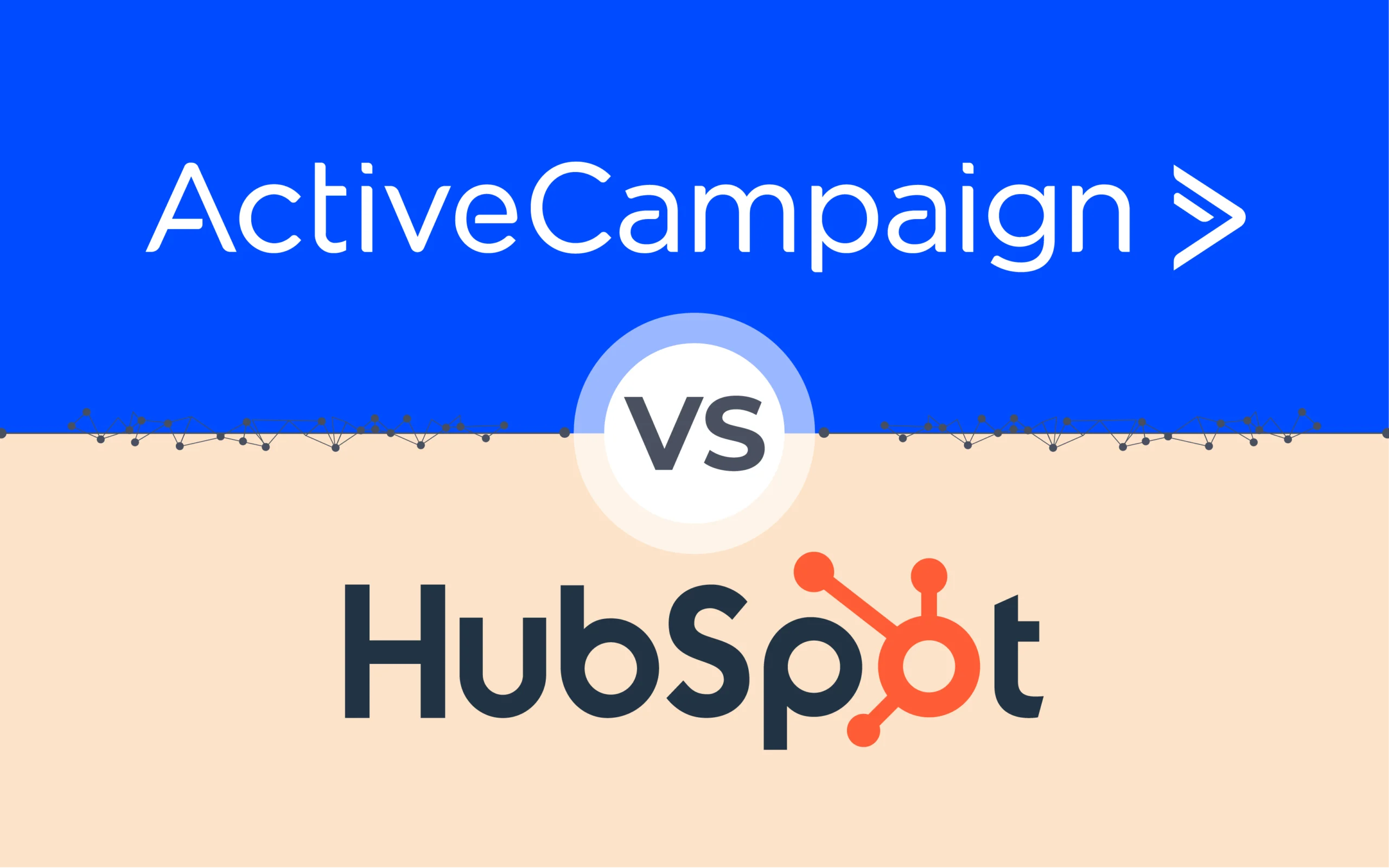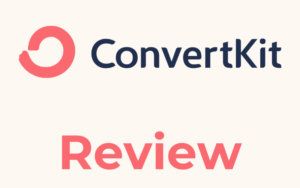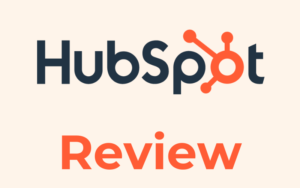In the bustling realm of digital marketing platforms, the debate between ActiveCampaign vs HubSpot has consistently emerged as a hot topic. Both platforms have made significant strides, offering a myriad of tools and features designed to elevate business marketing and customer relationship management to new levels. But which one is the right fit for your needs? In this comprehensive comparison ActiveCampaign vs HubSpot, we’ll dissect their offerings, from history and user experience to security and community feedback, ensuring you have all the information you need to make an informed decision. Dive in to discover the intricacies and nuances that set these titans apart.
Table of Contents
History and Background: ActiveCampaign vs HubSpot
In today’s digital age, choosing the right marketing platform is crucial for businesses aiming to establish a robust online presence. Two titans in this realm are ActiveCampaign and HubSpot. But before delving deep into the comparison HubSpot vs ActiveCampaign, let’s take a step back to understand their roots.
ActiveCampaign: Established in 2003 by Jason VandeBoom, ActiveCampaign commenced its journey primarily as an email marketing tool. As the digital landscape evolved, so did ActiveCampaign, expanding its functionalities to include marketing automation and CRM solutions. Today, it’s more than just an email marketing platform; it’s an integral tool for businesses wanting to create meaningful customer engagements. If you’d like a more detailed look at its features and benefits, refer to our blog post on ActiveCampaign.
HubSpot: Coming into the scene a bit later in 2006, HubSpot was the brainchild of Brian Halligan and Dharmesh Shah. They initiated their journey from the Massachusetts Institute of Technology (MIT). Identifying a changing tide in marketing strategies, HubSpot championed the inbound marketing methodology, enabling businesses to attract and nurture leads more organically. Originating as a blogging tool, HubSpot’s rapid evolution led it to become a comprehensive suite catering to sales, marketing, and customer service. Dive deeper into its functionalities by reading our HubSpot blog post.
When analyzing ActiveCampaign vs HubSpot from their historical genesis, it’s clear both platforms emerged from a need to redefine marketing strategies. They’ve pivoted from their initial offerings, adapting to market demands, emphasizing the importance of customer relationships. As the digital domain continues to expand, platforms like these remind us of the constant need for innovation and adaptation.
Ease of Use
The functionality of a digital marketing tool is only as good as its user-friendliness. After all, the most powerful features are rendered ineffective if users find them too complex or unintuitive. In the realm of marketing platforms, how do these two tools measure up in terms of ease of use? Let’s dive in HubSpot vs ActiveCampaign: Ease of use.
ActiveCampaign: This platform has evolved significantly since its inception, as detailed in our ActiveCampaign blog. With a dashboard that presents its myriad of features in a logical manner, users often commend ActiveCampaign for its intuitive design. While it might have a slight learning curve for absolute beginners, numerous tutorials and guides are available to aid users in becoming familiar with the interface. However, some have mentioned that its advanced automation features may take some time to master fully.
HubSpot: As a comprehensive inbound marketing tool, HubSpot has always emphasized user experience, which we’ve discussed further in our HubSpot blog post. HubSpot’s interface is clean, well-organized, and designed with the user in mind. Its drag-and-drop features, especially in the email and landing page editors, make the process straightforward even for those without a tech background. That said, due to its vast array of functionalities, newcomers might initially feel overwhelmed. Thankfully, HubSpot offers a plethora of training resources and certifications to guide users.
When contrasting the “Ease of Use” in ActiveCampaign vs HubSpot, both platforms demonstrate their commitment to user-centric design. They prioritize intuitive interfaces while providing ample resources to support users. However, the best platform for an individual or business largely depends on personal preference and the specific requirements they aim to address.
Features and Functionality
Selecting a digital marketing platform often boils down to its features and functionalities. Both ActiveCampaign and HubSpot have carved niches for themselves in this arena. But how do they compare head-to-head? Let’s delve into the ActiveCampaign vs HubSpot offerings.
ActiveCampaign: Originating as an email marketing platform, ActiveCampaign’s features have expanded immensely, a journey you can explore in our ActiveCampaign blog. Its core functionalities now include:
- Email Marketing: Advanced segmentation, dynamic content, and split testing.
- Marketing Automation: Comprehensive automation workflows with branching logic.
- CRM: Lead scoring, sales automation, and contact management.
- Messaging: SMS, site messaging, and Facebook custom audiences.
While it excels in marketing automation and email marketing, some users feel there’s room for improvement in its CRM and messaging components.
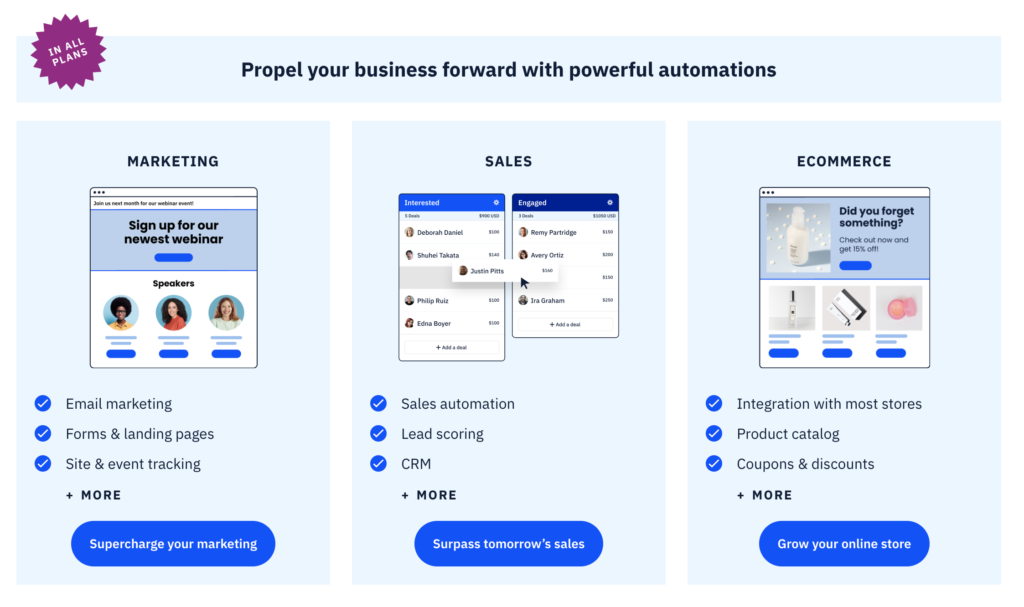
HubSpot: HubSpot is a holistic solution for inbound marketing, sales, and service. Dive deeper into its origins and ethos in our HubSpot blog post. Key functionalities include:
- Inbound Marketing: SEO tools, blogging platform, and social media management.
- Sales Hub: Automated sequences, deal pipelines, and predictive lead scoring.
- Service Hub: Helpdesk features, feedback surveys, and knowledge base creation.
- CRM: Centralized contact database with tracking and automation capabilities.
Its all-in-one nature makes it a go-to for businesses looking for an integrated solution, although some advanced marketers might wish for more in-depth features in certain areas.
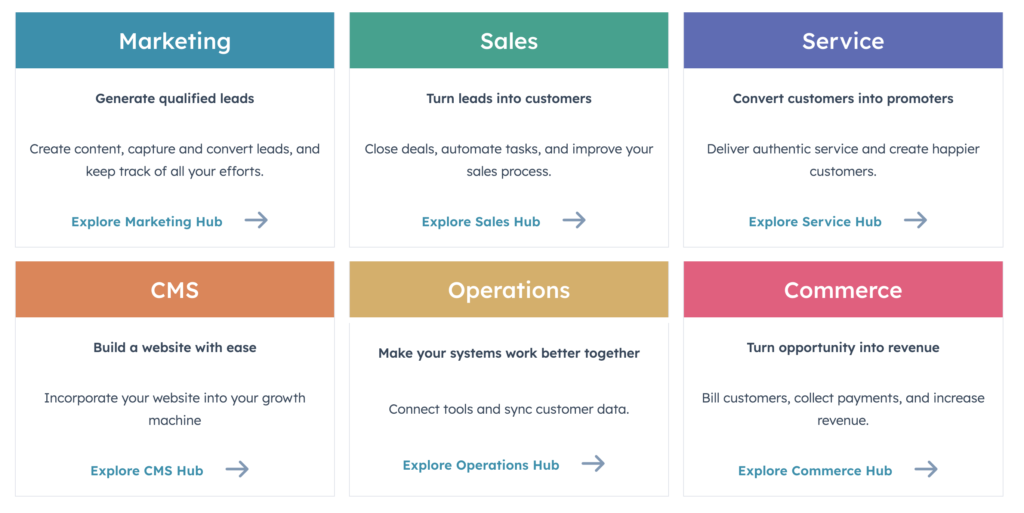
Comparing the “Features and Functionality” of ActiveCampaign vs HubSpot, it’s clear that both tools are powerhouses, albeit with different strengths. ActiveCampaign might appeal more to those deeply focused on email and marketing automation, while HubSpot stands out for businesses desiring a one-stop-shop for marketing, sales, and service needs.
Email Marketing Capabilities
In the world of digital marketing, email remains one of the most potent tools to engage audiences directly. Thus, understanding the email marketing capabilities of leading platforms. Let’s compare the offerings of ActiveCampaign vs HubSpot in this arena.
ActiveCampaign: As we’ve detailed in our ActiveCampaign blog, this platform was born from an email marketing ethos. Consequently, it boasts robust features in this domain:
- Segmentation: ActiveCampaign excels in its ability to create highly targeted email lists based on numerous criteria, ensuring personalized content reaches the right audience.
- Email Templates and Design: A vast library of templates is available, coupled with a drag-and-drop editor for custom designs.
- Automation Workflows: Users can craft intricate email sequences triggered by specific actions, leading to increased engagement and conversions.
- Analytics: Detailed reports on open rates, click-throughs, and engagement metrics aid in refining strategies.
HubSpot: HubSpot, as highlighted in our HubSpot blog post, is a holistic marketing solution, and its email marketing capabilities reflect this comprehensive approach:
- List Building and Segmentation: HubSpot offers dynamic list building based on user behavior, form submissions, and more, ensuring targeted outreach.
- Drag-and-Drop Editor: Designing emails is intuitive, with a range of templates suitable for various campaigns.
- A/B Testing: Users can test variations of their emails to determine what resonates best with their audience.
- Integration with CRM: One of HubSpot’s standout features is the seamless integration of its email tools with its CRM, ensuring a cohesive strategy across all touchpoints.
When evaluating “Email Marketing Capabilities” in the ActiveCampaign vs HubSpot debate, both platforms shine with their unique strengths. ActiveCampaign offers intricate automation and deep segmentation, making it a favorite for email-centric businesses. On the other hand, HubSpot’s integrated approach, merging CRM and email tools, caters to those seeking a unified marketing strategy.
Marketing Automation
In today’s fast-paced digital world, the ability to automate marketing processes is a game-changer. By reducing manual tasks, businesses can focus on strategy and growth. Both ActiveCampaign and HubSpot promise robust marketing automation capabilities, but how do they stack up against each other? Let’s investigate by comparing ActiveCampaign vs HubSpot in this field.
ActiveCampaign: As we’ve explored in our ActiveCampaign blog, this platform places a significant emphasis on automation:
- Visual Automation Builder: ActiveCampaign’s drag-and-drop automation builder is highly intuitive, enabling users to craft intricate workflows without the need for coding.
- Event Tracking: This feature allows businesses to monitor user interactions on their website, triggering specific automations based on behavior.
- Conditional Content: Emails can be tailored dynamically based on user data, ensuring personalized content for each recipient.
- Lead Scoring: By scoring contacts based on their interactions, ActiveCampaign helps businesses prioritize leads and tailor their outreach accordingly.
HubSpot: With its comprehensive marketing suite, HubSpot, detailed further in our HubSpot blog post, offers a wide array of automation tools:
- Workflow Builder: HubSpot’s builder facilitates the creation of automation sequences for marketing, sales, and service tasks, ensuring a cohesive approach.
- Behavioral Triggers: Automation can be set based on user interactions, ensuring timely and relevant engagement.
- Drip Campaigns: HubSpot simplifies the creation of drip email campaigns, ensuring consistent touchpoints with leads over time.
- Integration with CRM: HubSpot’s automation seamlessly interacts with its CRM, ensuring that leads are nurtured and managed effectively throughout their journey.
When considering “Marketing Automation” in the context of ActiveCampaign vs HubSpot, the decision often comes down to business needs and preferences. ActiveCampaign’s deep segmentation and dynamic content might be particularly appealing to businesses laser-focused on email marketing. Meanwhile, HubSpot’s holistic, integrated approach is ideal for businesses seeking a unified strategy across all their marketing, sales, a
CRM and Sales Features
CRM (Customer Relationship Management) systems and sales features are crucial tools for businesses aiming to manage, nurture, and convert leads efficiently. Both ActiveCampaign and HubSpot offer these tools, but they each bring unique strengths to the table. In this comparison of ActiveCampaign vs HubSpot, let’s break down their offerings in this realm.
ActiveCampaign: Delving into our ActiveCampaign blog, it’s clear that while the platform started with a strong email marketing foundation, it has since branched into CRM and sales:
- Sales Automation: ActiveCampaign enables users to automate follow-ups, lead prioritization, and other sales processes, ensuring no opportunity is missed.
- Contact Management: Store and manage contact details, purchase histories, and interaction records in one place.
- Lead Scoring: This feature helps businesses identify and prioritize high-value leads, ensuring optimal resource allocation.
- Deal Pipelines: Visualize the sales process with customizable stages, helping teams monitor and drive progress.
HubSpot: Our in-depth look in the HubSpot blog post reveals its inception as a holistic inbound marketing platform, with CRM and sales features at its core:
- Unified CRM: HubSpot’s CRM is seamlessly integrated with its marketing, sales, and service tools, providing a 360-degree view of each contact.
- Automated Sequences: Set up a series of personalized email touchpoints to nurture leads through the sales funnel.
- Task Automation: Automate repetitive tasks, such as follow-ups, reminders, and data entry, to optimize the sales team’s efficiency.
- Deal Tracking: Monitor deal stages, assign tasks, and set reminders, ensuring a systematic approach to closing sales.
In the “CRM and Sales Features” debate of ActiveCampaign vs HubSpot, both platforms offer formidable tools. ActiveCampaign, with its evolving CRM features, appeals to those looking for a flexible system that grows with their needs. On the other hand, HubSpot’s deeply integrated CRM system caters to businesses desiring a unified approach to their sales and marketing strategies.
Integrations and Ecosystem
A digital marketing platform’s value is often amplified by its ability to integrate with other tools and software. The richness of its ecosystem can enhance functionalities and create seamless workflows. In this comparison of ActiveCampaign vs HubSpot, let’s evaluate their integrations and overarching ecosystems.
ActiveCampaign: Delving deeper into our ActiveCampaign blog, one quickly discovers that ActiveCampaign boasts a rich tapestry of integrations:
- E-commerce Integrations: Platforms like Shopify, WooCommerce, and BigCommerce can be easily synced, helping online retailers automate marketing processes.
- Social Media Tools: Integrate with Facebook, Instagram, and other platforms to enhance audience targeting.
- Webinar Software: Integration with tools like Zoom and WebinarJam enables marketers to manage attendees and follow-up seamlessly.
- Custom API: For businesses with unique needs, ActiveCampaign offers a flexible API to craft custom integrations.
HubSpot: As highlighted in our HubSpot blog post, HubSpot’s ecosystem is vast, owing to its position as an all-in-one marketing solution:
- CMS Integration: HubSpot’s CMS Hub integrates seamlessly with its CRM, allowing content-driven lead management.
- Sales and Service Tools: Connect platforms like Slack, Zendesk, and PandaDoc to optimize communication and service delivery.
- Analytics and Tracking: Integrations with Google Analytics, Hotjar, and other tools provide deeper insights into user behavior.
- HubSpot Marketplace: With hundreds of apps and integrations available, users can tailor HubSpot to fit almost any requirement.
In the “Integrations and Ecosystem” arena of ActiveCampaign vs HubSpot, both platforms exhibit impressive versatility. ActiveCampaign’s broad range of integrations allows businesses to enhance and tailor its functionalities to specific niches. Meanwhile, HubSpot’s comprehensive ecosystem, underpinned by its marketplace, ensures that it remains a central hub, easily connecting with a multitude of tools to cater to diverse business needs.

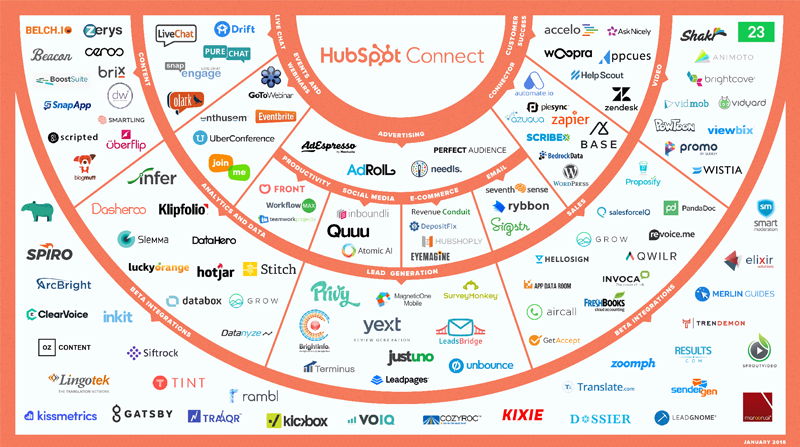
Pricing and Plans
The financial investment in a marketing platform often plays a crucial role in decision-making. Businesses need to ensure that they’re getting optimal value for their spend. When considering ActiveCampaign vs HubSpot, the pricing structures and plans offered by both can influence the final choice. Let’s compare.
ActiveCampaign: For a comprehensive breakdown, our ActiveCampaign blog details the platform’s evolution and offerings. Here’s a snapshot of its pricing:
- Lite: Aimed at startups and small businesses, this plan offers basic email marketing tools, unlimited sending, and chat & email support.
- Plus: Catering to growing businesses, Plus brings CRM, sales automation, and contact & lead scoring into the mix.
- Professional: Ideal for more established companies, this plan includes features like predictive sending, win probability, and split automations.
- Enterprise: Tailored for large-scale operations, Enterprise offers custom reporting, dedicated account rep, and in-depth onboarding.
HubSpot: For an in-depth dive into HubSpot’s diverse offerings, refer to our HubSpot blog post. In terms of pricing:
- Free CRM: HubSpot’s basic CRM is available for free, providing essential contact management and insights.
- Starter: A step up, Starter offers tools for email marketing, ad management, and meeting scheduling.
- Professional: Catering to growing businesses, this plan integrates sales, service, and CMS hubs with automation features.
- Enterprise: The most comprehensive option, Enterprise includes predictive lead scoring, custom event triggers, and advanced reporting.
In the “Pricing and Plans” context of ActiveCampaign vs HubSpot, decision-making hinges on specific business needs and budgetary constraints. ActiveCampaign offers specialized plans that scale in features and sophistication, while HubSpot provides a more holistic suite with tiered functionalities. Determining which offers better value involves considering both short-term requirements and long-term growth strategies.
Customer Support and Training
As businesses venture into the realm of digital marketing and CRM platforms, the level and quality of customer support and training can make or break their experience. When weighing up ActiveCampaign vs HubSpot, it’s essential to factor in the support infrastructure and resources available to users. Let’s explore.
ActiveCampaign: For more insights into ActiveCampaign’s complete offerings, you can check our ActiveCampaign blog. Here’s a glance at their support and training framework:
- Support Channels: ActiveCampaign provides users with email, chat, and phone support depending on the chosen plan level.
- Knowledge Base: A comprehensive repository of articles, tutorials, and guides to help users navigate the platform.
- ActiveCampaign University: A dedicated space offering courses and webinars, ensuring users can maximize the tool’s potential.
- Community Forum: An interactive platform where users can share experiences, troubleshoot issues, and discuss best practices.
HubSpot: To get an extensive understanding of HubSpot’s ecosystem, you might want to peruse our HubSpot blog post. Here’s a snapshot of their support and training landscape:
- Support Channels: HubSpot provides 24/7 phone and email support to its Professional and Enterprise customers, with additional chat support for quick queries.
- HubSpot Academy: This is a treasure trove of courses, certifications, and tutorials, aiming to empower users with knowledge.
- Knowledge Base: An expansive collection of articles and how-to guides catering to both novice and expert users.
- User Community: A vibrant forum where users exchange ideas, seek advice, and collaborate on challenges.
In the realm of “Customer Support and Training” for ActiveCampaign vs HubSpot, both platforms prioritize user empowerment and success. ActiveCampaign’s university and multi-tiered support channels ensure users have the resources at their fingertips. Simultaneously, HubSpot’s renowned academy and round-the-clock support signify its commitment to user proficiency and satisfaction.
Community and User Reviews
The voice of the community can be an illuminating gauge of a product’s strengths and areas for improvement. By examining user reviews and community engagement for ActiveCampaign vs HubSpot, potential users can glean valuable insights from those who’ve walked the path before. Let’s delve into the sentiment and feedback of the two communities.
ActiveCampaign: For a holistic perspective on ActiveCampaign, consider visiting our ActiveCampaign blog. Here’s a condensed view of community and user feedback:
- User Reviews: ActiveCampaign generally receives praise for its powerful automation capabilities and robust email marketing tools. Some users, however, have noted a steeper learning curve for newcomers.
- Community Engagement: The ActiveCampaign community forum is a bustling space with users regularly sharing strategies, troubleshooting problems, and exchanging integration tips.
- Endorsements: Numerous small to medium-sized businesses credit ActiveCampaign for its adaptability and niche-specific functionalities.
HubSpot: For an exhaustive overview of HubSpot’s offerings and dynamics, our HubSpot blog post is a must-read. Here’s a snapshot of its community and user sentiments:
- User Reviews: HubSpot is frequently lauded for its all-in-one platform approach, integrating sales, marketing, and CRM functions seamlessly. Some users, on the other hand, have pointed out that its breadth can occasionally overshadow depth in specific areas.
- Community Engagement: HubSpot’s user community forum is a vibrant and engaged space, with an array of HubSpot experts, partners, and regular users collaborating and sharing insights.
- Endorsements: Many larger businesses and enterprises celebrate HubSpot for its scalability, integrations, and comprehensive toolset.
In the “Community and User Reviews” context of ActiveCampaign vs HubSpot, it’s evident that both platforms have their champions. ActiveCampaign’s niche strengths and specialized functionalities resonate with a specific user base, while HubSpot’s all-encompassing approach appeals to businesses seeking an integrated solution. Prospective users would do well to consider the nuanced feedback from both communities when making their decision.
Security and Compliance
In the age of data breaches and increased regulatory scrutiny, security and compliance have risen to the forefront of considerations for businesses. When evaluating ActiveCampaign vs HubSpot, understanding their commitment to these aspects is paramount. Here’s a comparative look at how both platforms approach security and compliance.
ActiveCampaign: For an in-depth exploration of ActiveCampaign’s features and offerings, our ActiveCampaign blog is a valuable resource. Here’s what you need to know about its security and compliance landscape:
- Data Protection: ActiveCampaign boasts advanced encryption standards, both for data in transit and at rest, ensuring that user data remains confidential and intact.
- Compliance Frameworks: The platform aligns itself with global compliance regulations such as GDPR, ensuring data protection rights for all its users.
- Security Audits: Regular third-party audits and vulnerability assessments fortify ActiveCampaign’s defenses against potential threats.
- User Control: Features like two-factor authentication and granular access permissions empower users to have tighter control over their account’s security.
HubSpot: For those wanting a comprehensive dive into HubSpot’s vast ecosystem, our HubSpot blog post provides ample insights. Here’s a brief on its security and compliance mechanisms:
- Infrastructure Security: HubSpot’s cloud infrastructure prioritizes resilience and redundancy, ensuring continuous availability and data safety.
- Regulatory Adherence: Besides GDPR, HubSpot is also compliant with the California Consumer Privacy Act (CCPA) and has SOC 2 Type II certification.
- Regular Assessments: HubSpot undergoes rigorous security audits, penetration testing, and threat evaluations to stay ahead of potential vulnerabilities.
- Education and Resources: HubSpot offers its users a plethora of resources on best practices for data protection and compliance.
When considering “Security and Compliance” in the ActiveCampaign vs HubSpot debate, both platforms demonstrate robust measures and a deep commitment to user safety. ActiveCampaign’s focus on encryption and user controls balances well with HubSpot’s comprehensive infrastructure security and regulatory compliance. For businesses, the choice may boil down to specific compliance needs or a particular security feature they prioritize.
Conclusion: ActiveCampaign vs HubSpot – The Final Verdict
In the dynamic world of digital marketing and CRM platforms, both ActiveCampaign and HubSpot have carved out their niches and garnered dedicated user bases. From what we can retain from this blog ActiveCampaign vs HubSpot is that: ActiveCampaign shines with its specialized automation and email marketing capabilities, catering brilliantly to businesses that prioritize these areas, while, HubSpot, with its all-encompassing suite, appeals to those seeking an integrated solution for marketing, sales, and service.
Security, user experience, integrations, and community engagement are strong suits for both, though the nuances might lead a business to prefer one over the other as demonstrated in our comparison ActiveCampaign vs HubSpot. Pricing, while always a consideration, should be weighed against the specific features and functionalities your business needs.
To make an informed decision after reading the comparison of ActiveCampaign vs HubSpot, one must look beyond mere features and delve deep into the ethos, community feedback, and long-term vision of the platforms. Our detailed exploration into ActiveCampaign and HubSpot can provide further insights, guiding you toward a choice that aligns seamlessly with your business objectives.
In the end, whether you choose ActiveCampaign vs HubSpot, the key is to leverage their strengths to propel your business to new heights.

